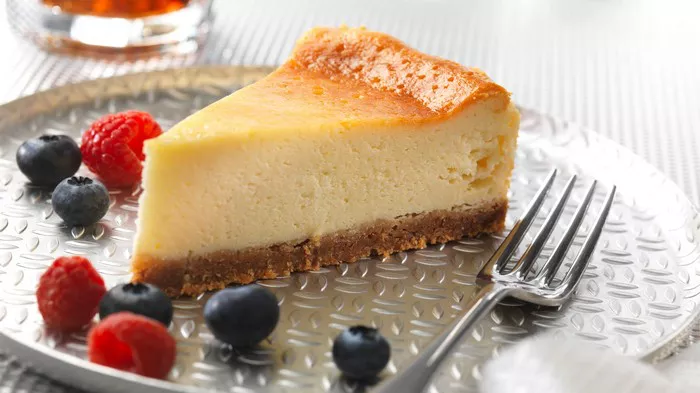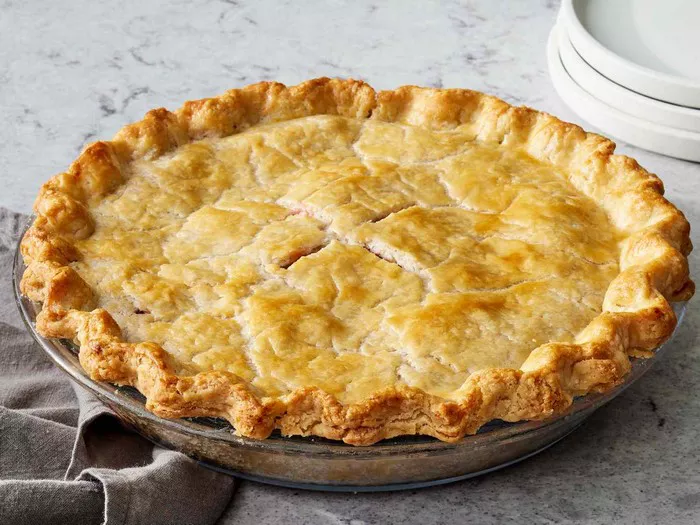Cheesecake, with its creamy texture and decadent flavor, is a beloved dessert that has delighted taste buds for centuries. Whether enjoyed plain, topped with fruit compote, or drizzled with caramel sauce, cheesecake holds a special place in the hearts of dessert enthusiasts around the world.
But amidst the various recipes and techniques for making this delectable treat, one question often arises: do you need eggs to make cheesecake? In this exploration, we’ll delve into the role of eggs in cheesecake making, uncovering their significance, alternatives, and impact on the final product.
The Essence of Cheesecake:
Before we dive into the specifics of cheesecake recipes, let’s take a moment to appreciate the essence of this beloved dessert.
Cheesecake is a delightful marriage of creamy cheese, sweetener, and crust, resulting in a dessert that is rich, indulgent, and utterly irresistible.
Whether baked or no-bake, cheesecake offers a symphony of flavors and textures that captivates the palate and leaves a lasting impression. From classic New York-style cheesecake to innovative variations featuring exotic ingredients and flavor combinations, there’s a cheesecake to suit every taste and occasion.
The Role of Eggs in Cheesecake:
Eggs play a crucial role in many cheesecake recipes, serving as a binding agent, emulsifier, and stabilizer. When combined with cream cheese, sugar, and other ingredients, eggs help create a smooth, creamy texture and prevent the cheesecake from cracking or collapsing during baking.
Additionally, eggs contribute to the richness and structure of the cheesecake, lending a velvety consistency and luxurious mouthfeel to each bite. While traditional cheesecake recipes typically call for eggs, there are alternatives for those with dietary restrictions or preferences.
Eggless Cheesecake Options:
For those who prefer to avoid eggs or have dietary restrictions, there are several eggless cheesecake options available that still deliver on flavor and texture.
One popular alternative is to use gelatin or agar-agar as a thickening agent and stabilizer in place of eggs. These plant-based alternatives provide similar binding and setting properties to eggs, resulting in a smooth, firm cheesecake without the need for animal products.
Additionally, some recipes utilize ingredients such as tofu, cashews, or coconut cream as a base for the cheesecake filling, creating a dairy-free and egg-free option that is still creamy and delicious.
The Impact of Eggs on Cheesecake Texture:
While eggs are a common ingredient in cheesecake recipes, their presence—or absence—can have a significant impact on the final texture and consistency of the dessert.
Cheesecakes made with eggs tend to have a denser, richer texture and a slightly eggy flavor profile. The eggs also help the cheesecake set properly during baking, resulting in a smooth, uniform texture that holds its shape when sliced.
In contrast, eggless cheesecakes may have a lighter, airier texture and a less pronounced flavor, depending on the alternative ingredients used.
Tips for Eggless Cheesecake Success:
If you’re opting to make an eggless cheesecake, there are a few tips to keep in mind to ensure success:
1. Choose the Right Alternative:
Experiment with different egg substitutes such as gelatin, agar-agar, tofu, or cashews to find the best option for your taste preferences and dietary needs.
2. Adjust the Recipe:
When using egg substitutes, you may need to adjust the proportions of other ingredients in the recipe to achieve the desired texture and flavor. Be prepared to experiment and make adjustments as needed.
3. Chill Thoroughly:
Allow your cheesecake to chill thoroughly in the refrigerator before serving to ensure that it sets properly and achieves the desired consistency.
4. Experiment with Flavors:
Get creative with flavor combinations and toppings to enhance the taste of your eggless cheesecake. Consider adding extracts, spices, or fruit purees to infuse the cheesecake with flavor and personality.
Conclusion:
While eggs are a traditional ingredient in many cheesecake recipes, they are not necessarily essential for creating a delicious and satisfying dessert. Whether you choose to include eggs or opt for eggless alternatives, the key to making a successful cheesecake lies in balancing ingredients, textures, and flavors to achieve the desired result.


























